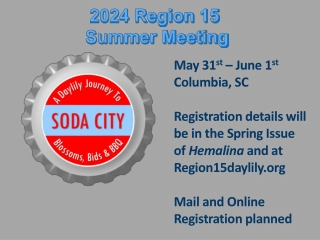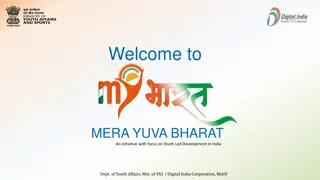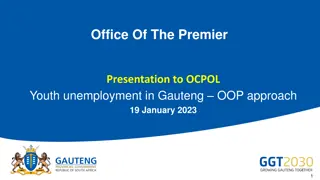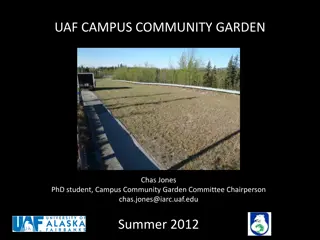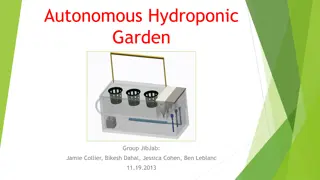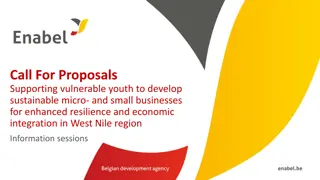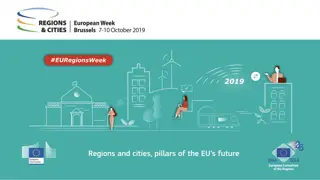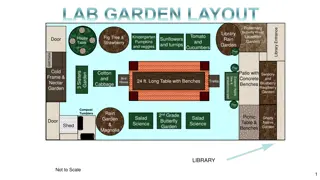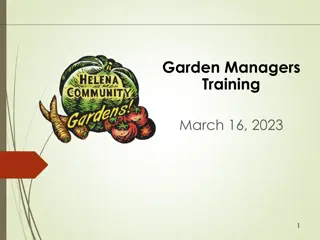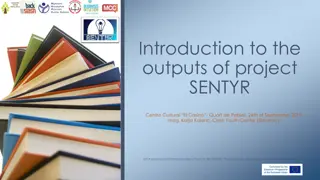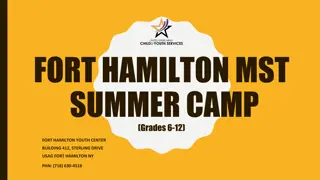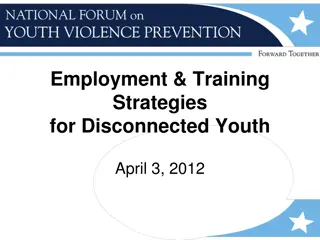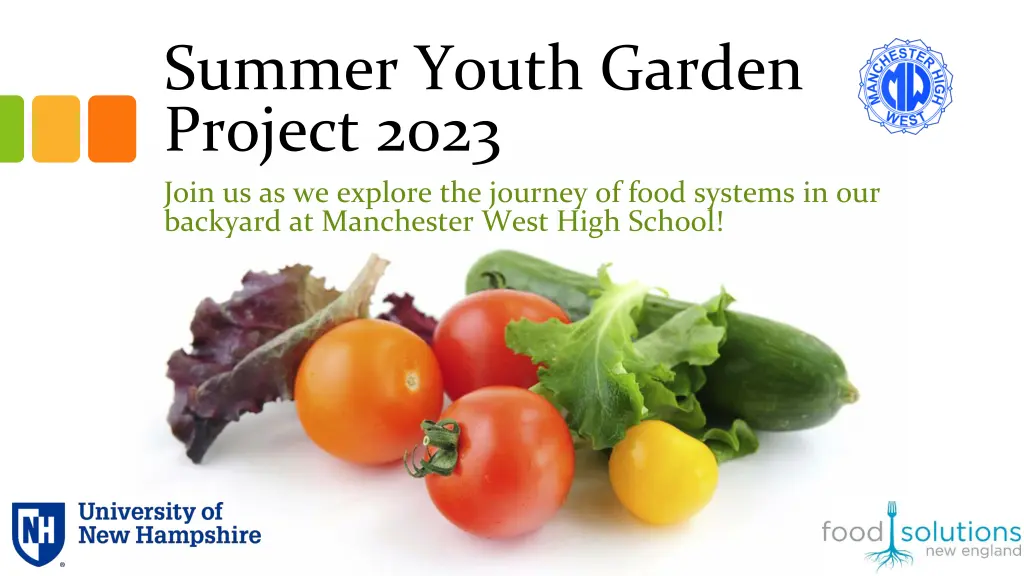
Youth Garden Project 2023: Empowering High School Students through Food Systems Exploration
Join the Summer Youth Garden Project 2023 at Manchester West High School to engage in farming, gardening, and community-building while promoting food literacy and sustainability. Explore the journey of food systems in New Hampshire and work towards racial food justice through hands-on learning opportunities. Enrich your understanding of nutrition, sustainable agriculture, and climate change impacts on food security. Become a part of a dynamic program fostering skills in nature, health, and social awareness.
Download Presentation

Please find below an Image/Link to download the presentation.
The content on the website is provided AS IS for your information and personal use only. It may not be sold, licensed, or shared on other websites without obtaining consent from the author. If you encounter any issues during the download, it is possible that the publisher has removed the file from their server.
You are allowed to download the files provided on this website for personal or commercial use, subject to the condition that they are used lawfully. All files are the property of their respective owners.
The content on the website is provided AS IS for your information and personal use only. It may not be sold, licensed, or shared on other websites without obtaining consent from the author.
E N D
Presentation Transcript
Summer Youth Garden Project 2023 Join us as we explore the journey of food systems in our backyard at Manchester West High School!
Purpose This is a project that will help to design fundamental skills around farming, gardening, nature, food, health and community Using engaging approved curricula to deliver practical food demonstrations to support healthy eating options and to understand the unique food system in NH Work towards a vision of racial food/social justice using methods of sustainable agriculture, nutrition equity, exploration of cultural crops and food sovereignty Present a robust agenda to address the reflection of the community and current issues around climate change and its relation to food insecurity in the garden
Overview Objective: To provide hands on learning opportunity to engage youth with academic enrichment in the garden exploring bolder and broader concepts to develop a budding interest and positive relationship with nature, food, community and environment Who: Enrichment program designed for high school students When: June 26th-July 21st, Every Monday-Thursday from 9:30am-1pm Fully supervised with a UNH Extension Youth and Family Health Specialist and Manchester West High School Science Instructor (and a Master Wellness Volunteer from UNH extension) Implement USDA approved Gardening Curriculum
Lesson 1: Food Literacy Learning food vocabulary will help to improve our understand parts of a farming system Sustainability Organic/Inorganic Pesticide/Herbicide/Insecticide
Lesson 2: Sustainable Agriculture Farming practices that does not require the use of pesticides or chemical fertilizers Supports local farmers and preserve local landscape Adds to the economy by supporting local retailers and distributors Adds to diversity of ecosystems by attracting beneficial insects, birds and animals Works to preserve character of rural communities
Lesson 3: Nutrition and Eating Healthy Balanced meal Macro and micro nutrients Processed ingredients vs organic foods Optimal health benefits: balancing healthy habits from growing to preparing and consuming
Food Activity Explore our own food journey with live discussions and food demonstrations! Guided instructional activity with the MyPlate as a guide Write down what you ate for your last meal Who prepared it? Where did the food come from Where were the ingredients grown? How were the ingredients used in the food
Food Choices We ll dive into ways of nourishing the body despite socioeconomic barriers. Map out ways to provide sustenance through means of availability and accessibility of fresh food What are the barriers creating unhealthy choices (activities and discussions will support related topics) Lack of time Limited time to prepare meals Cost efficient Lack of concern regarding healthy eating Taste preference Cultural foods
Food Development and Security How does a particular plant affect the local food system Global food security and hunger-how are others impacted Ways to improve living sustainably Identify known health issues in NH Using (homestead) gardening to address hunger
Leadership Roles and Development Community involvement helps to increase confidence Positive interactions Learn to foster a compassion for others Accepting challenging roles
Garden Ecology Microbe interactions Native and invasive species Plant diseases Nutrient deficiency
Scientific Aspects of Growing Food Soil Health Pest management Soil conditions Nutrients Ecosystems
Composting Decomposition of organic matter Organic Fertilizers: use of natural sources Bone meal, cottonseed, greensand and rock phosphate Distinguish differences between conventional and commercial fertilizer Synthetic fossil fuels Composting Mediums
Cover Cropping Grasses & legumes Advantages and disadvantages Seasonal cover crops
More topics to come, youth applications and a link to learn more! Please feel free to reach out with questions! Thank you for supporting the Summer Garden Youth Project 2023!
Ameenah.Shabazz@unh.edu University of New Hampshire Sustainability Institute: Food Solutions New England Racial Food Ambassador, UNH Cooperative Extension Youth and Family Health Specialist, Trained Horticulturalist, Master Wellness Volunteer Graduate, Certified Urban Farmer, Integrative and Functional Nutrition current graduate student

